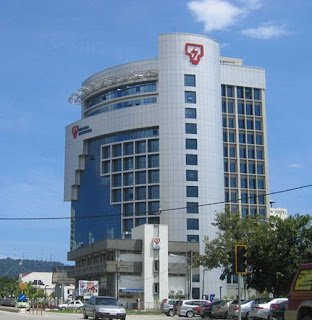The KLCI performed as expected as a reasonable stream of results provided a stable floor while strong news flow drove up Bigger Caps. For June, while the 4 upcoming IPOs and the KLCI review may draw some attention, OSK believe all eyes will be on the potential tussle between CIMB and Maybank over the control of RHB Cap.
 |
| OSK Research |
Outlook: Possibly not as quiet as expected
With a total of 4 IPOs going for listing in June and July, it was expected that the market to be somewhat quiet as investors stored away funds to subscribe to the IPOs or buy into them when traded. Despite concerns that the amount of funds raised by the 4 IPOs, namely UOA Development, MSM Malaysia, Axis International REIT and Bumi Armada, would suck the liquidity out of the market, but the amount of funds (RM7.7bn) is far less than that raised in 2010 with the listing of MMHE and Petronas Chemicals (RM14bn). Thus, there should not be much of an issue on the liquidity of the market post the 4 IPOs.
 |
| Funds to be raised by IPOs in 2011 (Source: Company Data, OSK) |
Together with the KLCI review
Another market's attention factor is the upcoming KLCI review, which are to be announced on 6 or 7 June and become effective in the 3rd week of June. In this review, OSK see MMHE and UEMLand possibly replacing PLUS and MAS, which will be privatized and has fallen below the Top 40 stocks by market cap respectively.
 |
| OSK Research, Bloomberg |
Banks and Situational
Given what may still be a lackluster broader market in June, we are focusing on a number of situational stocks that should see better news flow during the month.
- First, we have UEMLand who will likely joining KLCI before end June.
- We also have KimLun Corporation which may see a pick up news flow on Iskandar Malaysia during the month.
- Next, we have Khazanah's Pos Malaysia stake sale completed in the 3rd week of June coupled with details of what DRB-Hicom plans to do with the company.
- Finally, we have 2 smaller banks, namely RHB Cap and Alliance Financial Group that should see sentiment on improved M&A rumors.
Source: OSK Research






























